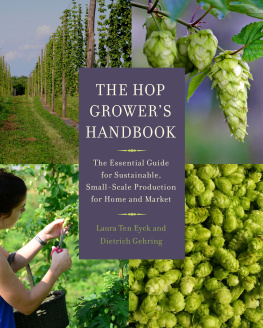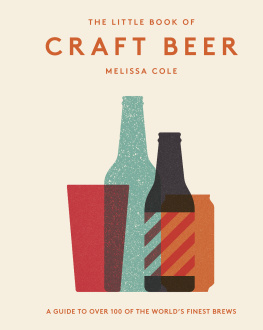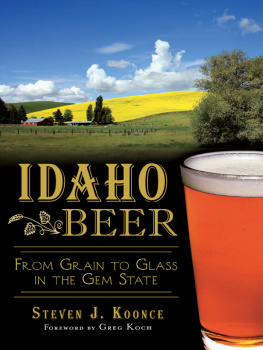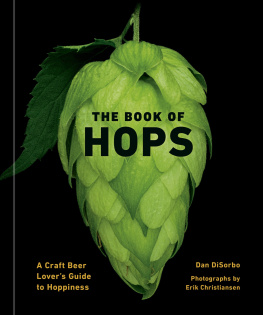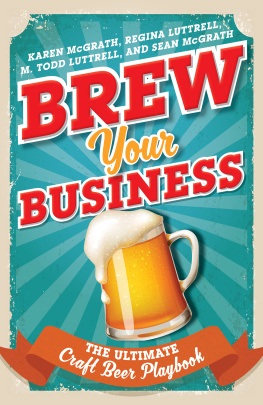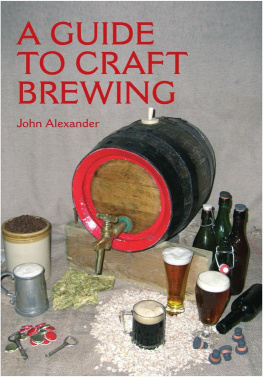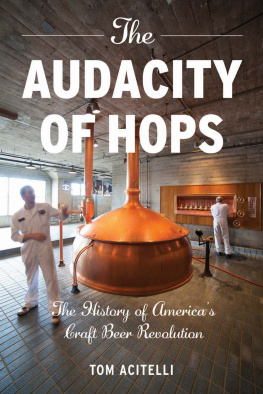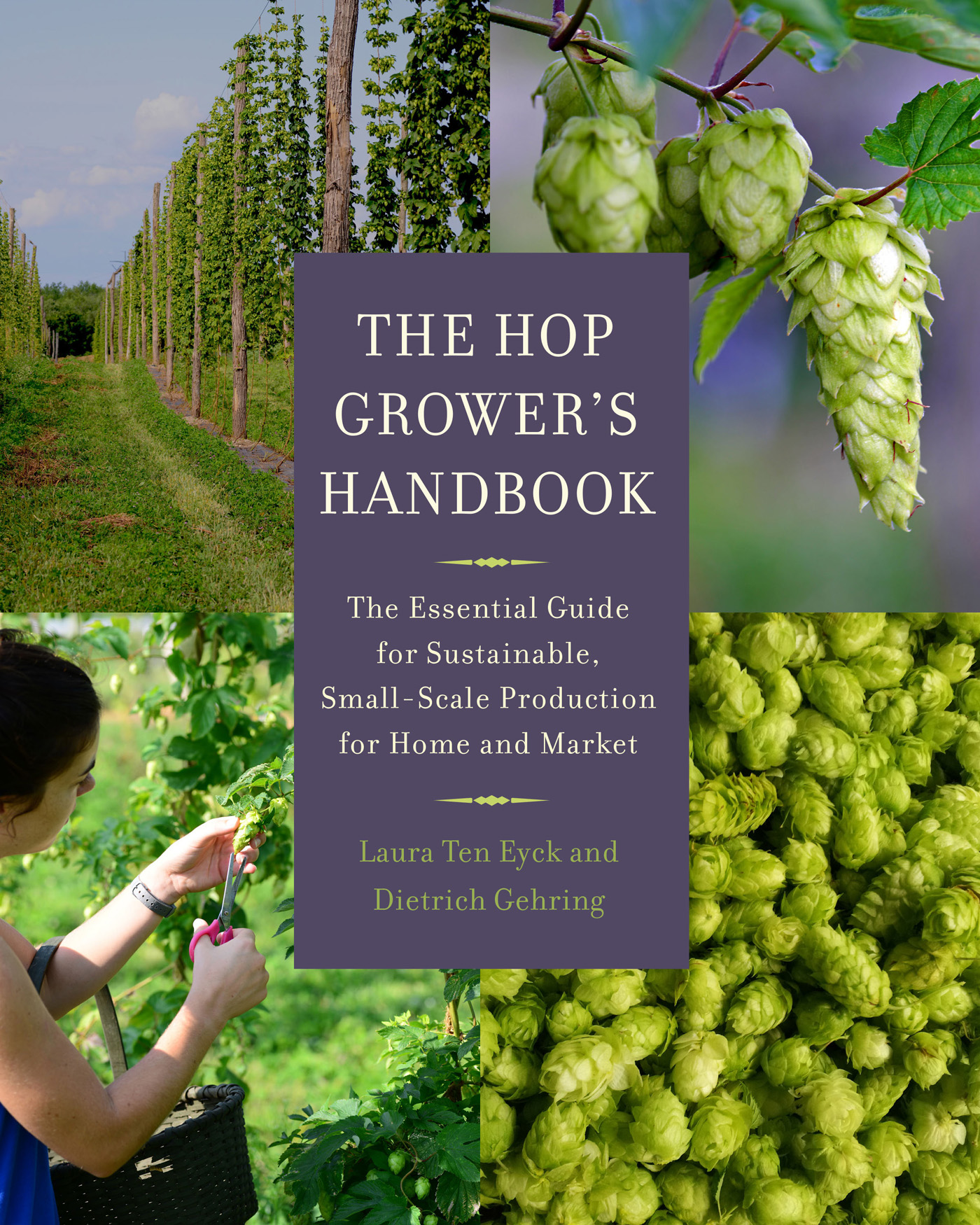Laura Ten Eyck - The Hop Growers Handbook: The Essential Guide for Sustainable, Small-Scale Production for Home and Market
Here you can read online Laura Ten Eyck - The Hop Growers Handbook: The Essential Guide for Sustainable, Small-Scale Production for Home and Market full text of the book (entire story) in english for free. Download pdf and epub, get meaning, cover and reviews about this ebook. year: 2015, publisher: Chelsea Green Pub Co, genre: Home and family. Description of the work, (preface) as well as reviews are available. Best literature library LitArk.com created for fans of good reading and offers a wide selection of genres:
Romance novel
Science fiction
Adventure
Detective
Science
History
Home and family
Prose
Art
Politics
Computer
Non-fiction
Religion
Business
Children
Humor
Choose a favorite category and find really read worthwhile books. Enjoy immersion in the world of imagination, feel the emotions of the characters or learn something new for yourself, make an fascinating discovery.
- Book:The Hop Growers Handbook: The Essential Guide for Sustainable, Small-Scale Production for Home and Market
- Author:
- Publisher:Chelsea Green Pub Co
- Genre:
- Year:2015
- Rating:5 / 5
- Favourites:Add to favourites
- Your mark:
The Hop Growers Handbook: The Essential Guide for Sustainable, Small-Scale Production for Home and Market: summary, description and annotation
We offer to read an annotation, description, summary or preface (depends on what the author of the book "The Hop Growers Handbook: The Essential Guide for Sustainable, Small-Scale Production for Home and Market" wrote himself). If you haven't found the necessary information about the book — write in the comments, we will try to find it.
With information on siting, planting, tending, harvesting, processing, and brewing
Its hard to think about beer these days without thinking about hops.
The runaway craft beer markets convergence with the ever-expanding local foods movement is helping to spur a local-hops renaissance. The demand from craft brewers for local ingredients to make beersuch as hops and barleyis robust and growing. Thats good news for farmers looking to diversify, but the catch is that hops have not been grown commercially in the eastern United States for nearly a century.
Today, farmers from Maine to North Carolina are working hard to respond to the craft brewers desperate call for locally grown hops. But questions arise: How best to create hop yardsvirtual forests of 18-foot poles that can be expensive to build? How to select hop varieties, and plant and tend the bines, which often take up to three years to reach full production? How to best pick, process, and price them for market? And, how best to manage the fungal diseases and insects that wiped out the eastern hop industry 100 years ago, and which are thriving in the hotter and more humid states thanks to climate change? Answers to these questions can be found in The Hop Growers Handbookthe only book on the market about raising hops sustainably, on a small scale, for the commercial craft beer market in the Northeast.
Written by hop farmers and craft brewery owners Laura Ten Eyck and Dietrich Gehring, The Hop Growers Handbook is a beautifully photographed and illustrated book that weaves the story of their Helderberg Hop Farm with the colorful history of New York and New England hop farming, relays horticultural information about the unusual hop plant and the mysterious resins it produces that give beer a distinctively bitter flavor, and includes an overview of the numerous native, heirloom, and modern varieties of hops and their purposes. The authors also provide an easy-to-understand explanation of the beer-brewing processcritical for hop growers to understand in order be able to provide the high-quality product brewers want to buyalong with recipes from a few of their favorite home and micro-brewers.
The book also provides readers with detailed information on:
Selecting, preparing, and designing a hop yard site, including irrigation;
Tending to the hops, with details on best practices to manage weeds, insects, and diseases; and,
Harvesting, drying, analyzing, processing, and pricing hops for market.
The overwhelming majority of books and resources devoted to hop production currently available are geared toward the Pacific Northwests large-scale commercial growers, who use synthetic pesticides, fungicides, herbicides, and fertilizers and deal with regionally specific climate, soils, weeds, and insect populations. Ten Eyck and Gehring, however, focus on farming hops sustainably. While they relay their experience about growing in a new Northeastern climate subject to the higher temperatures and volatile cycles of drought and deluge brought about by global warming, this book will be an essential resource for home-scale and small-scale commercial hops growers in all regions.
Laura Ten Eyck: author's other books
Who wrote The Hop Growers Handbook: The Essential Guide for Sustainable, Small-Scale Production for Home and Market? Find out the surname, the name of the author of the book and a list of all author's works by series.

